Downstream
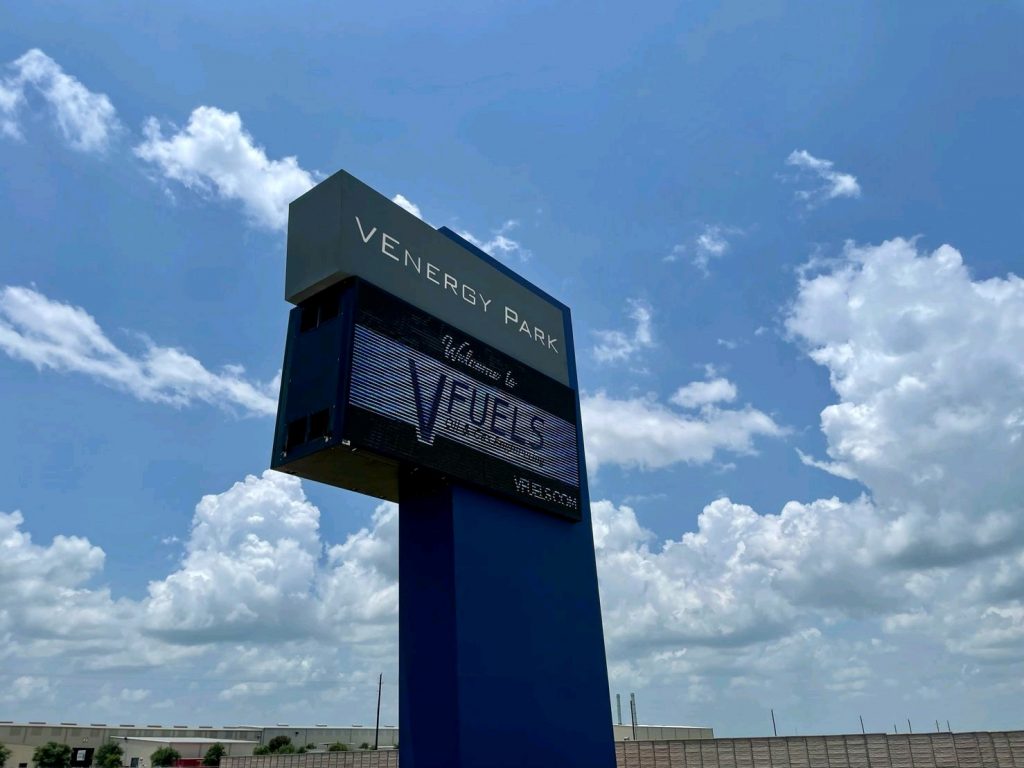
VFuels wins FEED contract for new refinery in Nigeria
VFuels LLC, a Houston- based oil and gas engineering firm, has signed a Front-End Engineering Design (FEED) contract with HSI Refining & Petrochemical Company Ltd for a modular refinery project in Nigeria. The contract, which was announced on 17th November, covers the design and engineering of a 5,000 barrels per day (bpd). The refinery will process crude oil produced from a marginal field located in Abia State. The project is expected to be completed in 18 months and will produce Naphtha, Kerosene, Diesel, and Heavy Fuel Oil for the domestic market. “The refinery is set to play a crucial role in meeting the growing demand for energy products in Abia state as well as fulfilling the need for decentralized refining infrastructures in Nigeria,” Vfuels said in an official statement. VFuels specializes in modular process equipment for the oil and gas industry, and has experience in designing and fabricating modular refineries, gas plants and early production facilities. Earlier this year, VFuels announced that it has been selected to carry out expansion works at the Waltersmith Ibigwe Refinery in Imo State. The contract allows VFuels to double the refinery’s capacity to 10,000 barrels per day (bpd), after it designed and installed the 5,000 bpd Phase, which was commissioned in 2020.
Read more »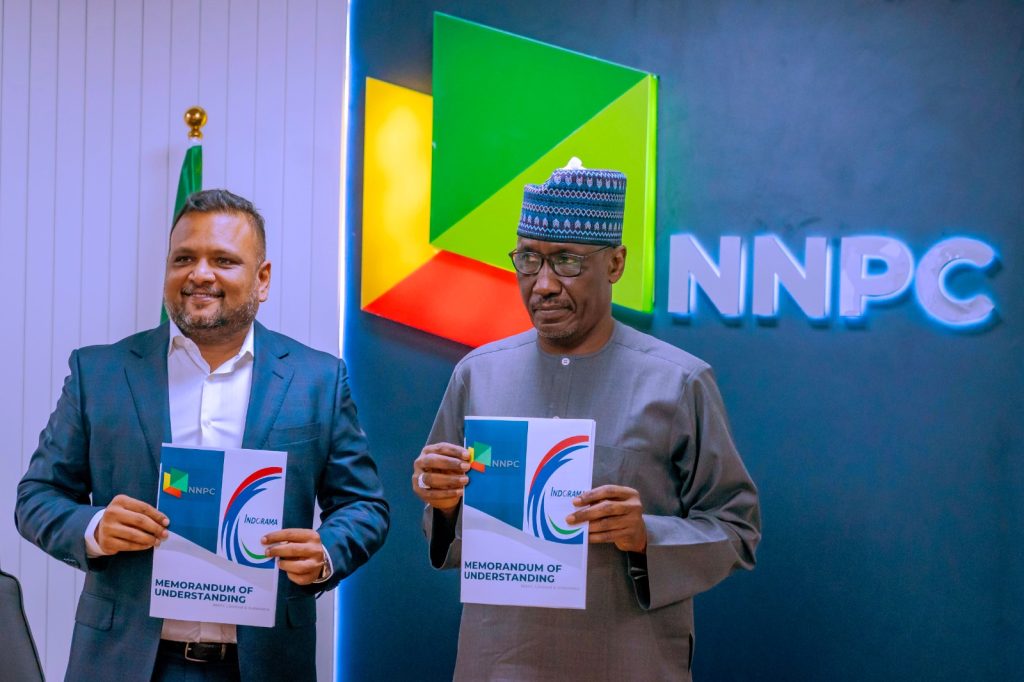
NNPC signs MoU with Indorama to boost Nigeria’s domestic gas industry
This story was first published on the Hawilti+ Terminal on 18 September 2023. Nigeria National Oil Petroleum Company (NNPC), the country’s state energy firm, and Indorama Eleme Petrochemicals Ltd., an entity of the Singapore-based Indorama Group, have signed an MoU that will allow both parties to explore opportunities across Nigeria’s hydrocarbon value chain, as Africa’s biggest oil producer seeks to boost domestic use of natural gas and associated liquids for economic growth. “This is a strategic collaboration to unlock Nigeria’s upstream sector, but more importantly, to partner downstream, in order to share the value chain,” CEO at Africa Indorama Energy Manish Mundra said in an official statement, adding that Nigeria’s gas reserves should position the country as one of the largest producers of urea in the western hemisphere. Privatized in 2006, the petrochemicals and fertilizer complex of Indorama Eleme has become one of Africa’s largest downstream facilities, proving a significant asset to monetize Nigerian gas. The fertilizer plant is well supported by port terminal at the nearby Onne port, and a gas pipeline of 83.5km for gas supply. Located in Port Harcourt, the complex started exclusively with the production of petrochemicals, including 440,000 tpy of olefins and 120,000 tpy of polypropylene. In 2013, a new polyethylene unit was added, which is able to produce 360,000 tpy. Beyond petrochemicals, Indorama Eleme has since made an aggressive venture into the urea and fertilizers business. By 2013, the company secured $1bn to develop a urea train with a capacity of 1.4 million tons per year (tpy), which it completed in 2015 and commissioned in 2016 (Line 1). A second urea train and fertilizer plant was eventually commissioned to enable Indorama Eleme to double its fertilizer production from 1.4 mmtpa to 2.8 mmtpa (Line 2). The company currently plans to expand within the next 6 years in the gas-based heavy manufacturing industries, including fertilizer, methanol, and petrochemicals. According to disclosures by the International Finance Corporation (IFC), Indorama is notably seeking to develop a third urea fertilizer line (Line 3) at the same site to grow urea production capacity to 4.2 mmtpa, To support such expansion, it will need a steady supply of gas feedstock. The agreement reached with NNPC could help monetize over 1.7 Tcf of gas and 100 million barrels of oil reserves. That monetization plan, according to the NNPC, includes downstream production of about 4.8 mmpta of associated products, including methanol, urea, and fertilizer for food security. “NNPC Limited is on the threshold of making value out of gas beyond any imagination,” GCEO, Mele Kyari said, adding as part of Nigeria’s Nigasification strategy to promote domestic utilization of natural gas “we are seeing an annual contribution of $3bn to the nation’s GDP and a lifetime contribution of $18bn to government revenue.” Nigeria holds some of the world’s biggest gas reserves estimated at over 200 trillion cubic feet, but they remain largely underdeveloped, benefiting industrialization and power generation overseas through LNG exports. Boosting local consumption is now at the centre of the government’s agenda as it promotes gas as a transition and cleaner fuel.
Read more »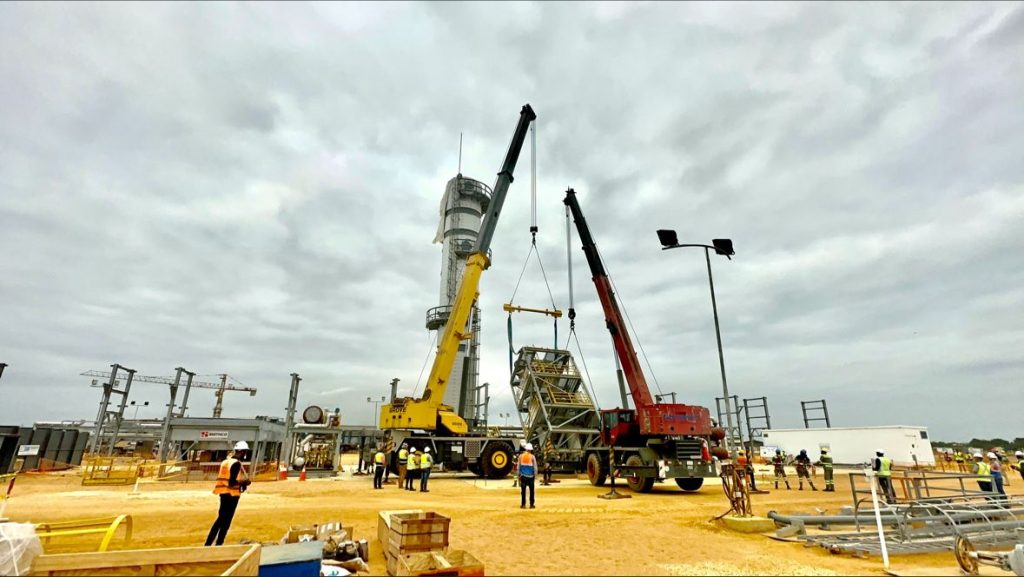
Africa’s refining industry on the path of recovery, shows new Hawilti report
The reopening of some refineries in Africa and the gradual commissioning of new facilities will mark the recovery of the continent’s downstream industry in 2023, according to Hawilti’s African Refineries Watch published today. While sub-Saharan Africa’s refining capacity is still under-utilised at some 40%, recovery is on the horizon with the re-opening of South Africa’s Astron Energy Refinery (100,000 barrels per day – bpd) and Ghana’s Tema Oil Refinery (45,000 bpd). Once both facilities are back in operations, the sub-continent will be able to utlise about half of its installed refining capacity. Refining capacity to get a boost in West Africa Ghana is also expecting to commission soon the Sentuo Oil Refinery, a 3 train multi-product crude oil refinery built within the Tema Industrial Zone with a targeted production capacity of 120 000 bpd. Its initial phase will have a capacity to produce 2 million tonnes per year (tpy) of petroleum products, almost doubling the country’s refining capacity. This is welcome news for Ghana who has seen its imports bill soar in recent months, reaching almost $4 billion in 2022 in premium and gasoil imports, according to the Bank of Ghana. But much larger change is currently happening in Nigeria, with the upcoming commissioning of the 650,000 bpd Dangote Refinery. The facility is scheduled to be inaugurated on May 22nd just before President Buhari leaves office and will cement Nigeria’s position as Africa’s leading refiner. Hawilti expresses cautious optimism on the commissioning of the Dangote Refinery, pointing to the complex and lengthy process required to reach full production. In its most recent report on Nigeria, the IMF for instance did not expect the refinery to reach full capacity right away, assuming a production of only 100,000 bpd in 2024 and 200,000 bpd in 2025. Meanwhile, Nigerian modular refineries have managed to navigate the country’s challenging business environments and found ways to secure new feedstock options to run small-scale facilities. Both the 1,000 bpd Edo Refinery and the 2,500 bpd Duport Midstream Refinery for instance are currently receiving crude oil by trucks from a marginal field in the Niger Delta to support their operations. The Edo Refinery is also undergoing significant expansion, with owner AIPCC Energy expecting to reach a capacity of 30,000 bpd at the end of this year and up to 100,000 bpd in 2024. “The drive to develop downstream assets with emphasis on refineries in emerging economies coupled with global energy volatility and evacuation challenges in some African countries is fueling the interest in the development of modular refineries,” declared Souheil Abboud, Managing Director at VFuels LLC. “The benefits of decentralizing refining infrastructure are one of the main reasons for the growth of modular refineries in Africa, and especially Nigeria. We are surely witnessing a growing demand for more sustainable infrastructure assets and an interest from Nigerian developers to integrated low-carbon electrification options within their future refining infrastructure. VFuels is proud to have completed an engineering FEED package that integrates renewable power solution for a refinery project in Nigeria.”
Read more »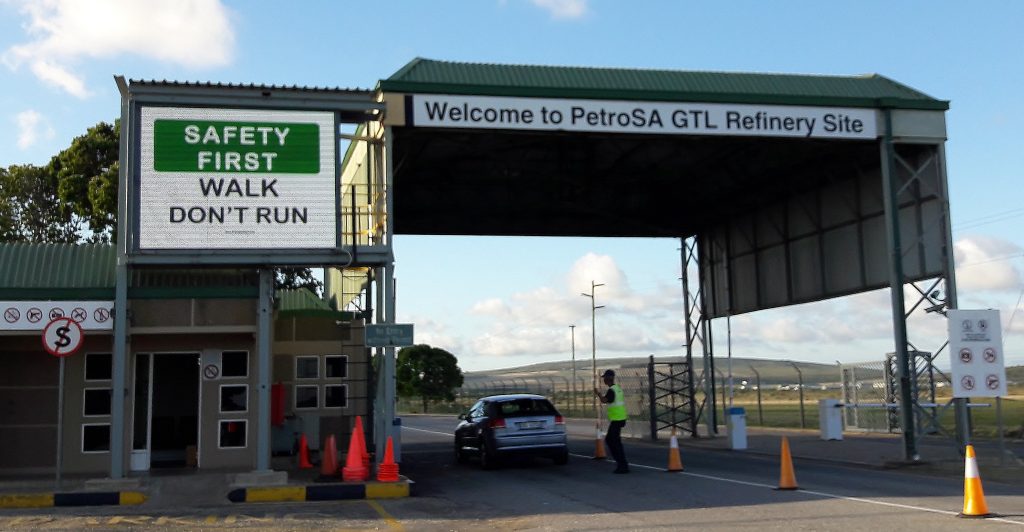
South Africa: PetroSA seeks partner to reinstate full production at Mossel Bay GTL Refinery
South Africa’s PetroSA has issued a Request for Proposal (RFP) to secure a partner for the development, refurbishment, modification, upgrade, funding and/or operation of its gas-to-liquids (GTL) refinery at Mossel Bay. “PetroSA is planning to reinstate to full production level its Mossel Bay Production Assets which includes the FA Platform and GTL-Refinery (Gas Loop and Liquids Refinery) in the earliest possible time at least costs following suspension of production in 2020 due to feedstock challenges,” the company said in its RFP document consulted by Hawilti. While the 36,000 bpd refinery has not been able to produce since 2020, its outlook changed when TotalEnergies made significant gas and condensate discoveries at Brulpadda and Luiperd in 2019 and 2020, within its deep-water Block 11B/12B. Both discoveries have the potential to supply gas to the domestic market and provide the feedstock required to restart operations at PetroSA’s GTL refinery and reach full production capacity by 2027/2028. TotalEnergies and its partners are already working on an early production scheme (EPS) that would provide first gas and condensate production from the Luiperd discovery. The project would likely utilize PetroSA’s nearby infrastructure, including the FA Platform, in order to supply gas to customers in Mossel Bay. Interested parties for the development and upgrade of the Mossel Bay GTL Refinery have until February 20th to submit their applications for a turnkey solution from design to commissioning, including funding and feedstock security. PetroSA has notably expressed its interest to link the success of the projects to financial incentives, including sharing in production revenues, performance-based contracting, or equity participation.
Read more »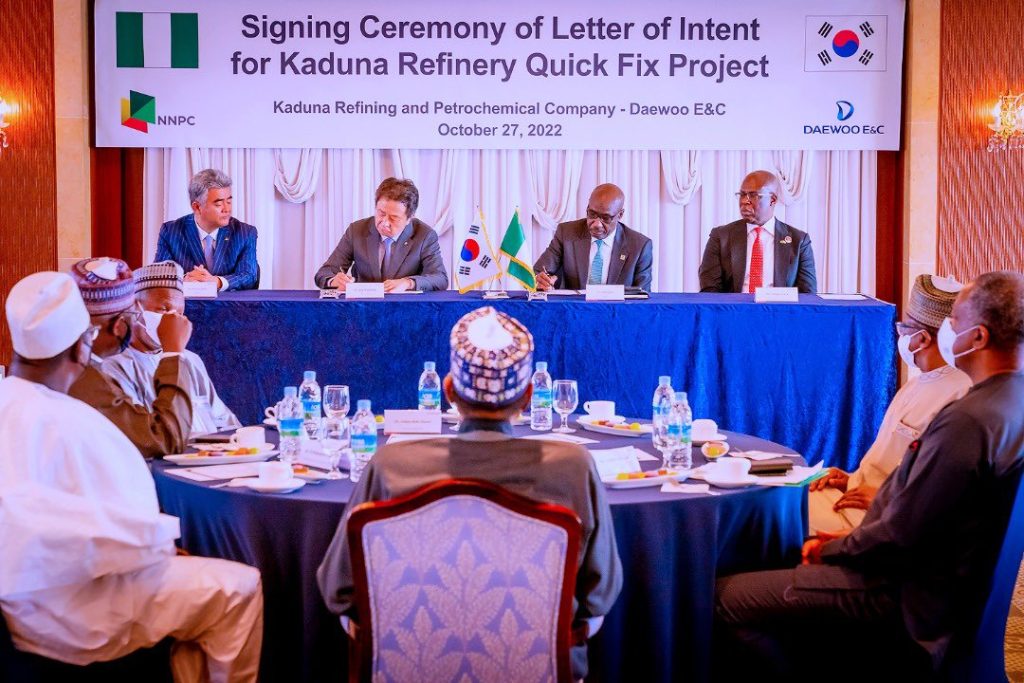
Nigeria: Daewoo E&C intends to “fix” both Kaduna and Warri refineries
While in South Korea last week, President Muhammadu Buhari witnessed the signing of a letter of intent (LoI) between NNPC Ltd and Daewoo E&C for the revised strategy to fix the state-owned Kaduna Refinery in northern Nigeria. According to officials, Daewoo E&C intends to complete the Kaduna refinery rehabilitation project by signing the official contract with the NNPC by the first quarter of 2023. The Kaduna refining complex was developed in two major phases: the construction of the 110,000 bpd refinery in 1983, followed by a 30,000 tpy petrochemical unit in 1988. Various factors have severely impacted the operational efficiency of the refinery. Over the past 10 years, capacity utilization at the Kaduna Refinery has averaged only 13.87%. Future rehabilitation works the refinery site and on associated pipelines and depots are expected to bring back capacity utilization to 90% in the near future. Daewoo E&C was already selected last June for the “quick fix” project at the state-owned Warri Refinery, under a contract worth $492.3m. Both refineries were initially scheduled for full rehabilitation under a $1.484bn contract with Italian contractor Saipem, approved by the Federal Executive Council (FEC) in August 2021. However, the deal fell through and led to the restructuring of both initiatives as cheaper, “quick fix” projects executed by Daewoo E&C. Meanwhile, Italian contractor Tecnimont is busy rehabilitating the state-owned Port Harcourt Refinery under a full-fledged, $1.5bn rehabilitation scheme that started in April 2021 and will last 40 months. In early June 2022, the Italian EPC contractor reached 1 million safe manhours without LTI at the site. Details on the rehabilitation of Nigerian refineries are available in your Hawilti+ research terminal.
Read more »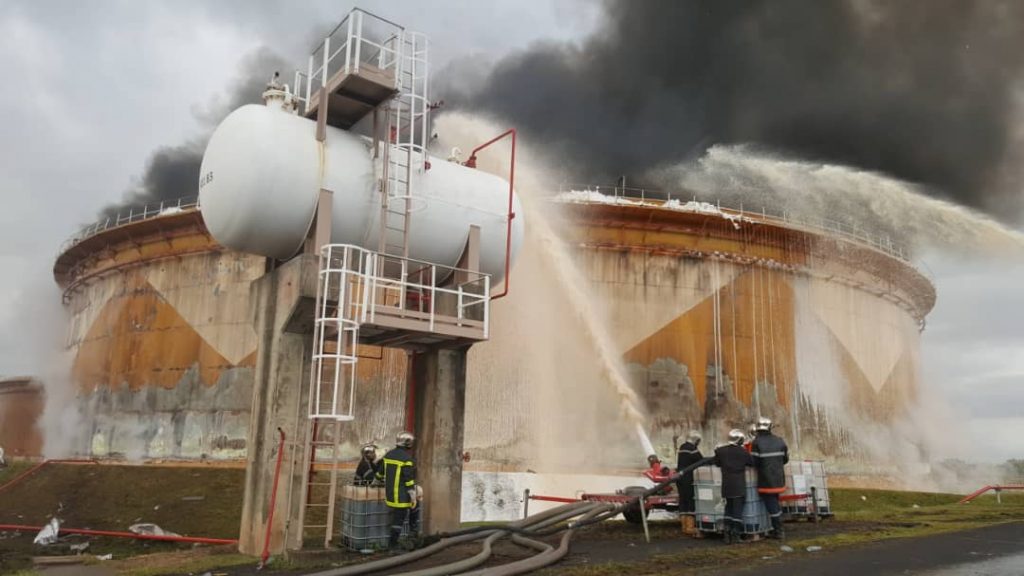
Cameroon’s SONARA restructures commercial debt with Vitol
Cameroon’s SONARA, which operates Central Africa’s biggest refinery, has reached a deal with oil trader Vitol to restructure its commercial debt. The deal had been in the making for some time as the state-owned refining company seeks to restructure its debt, which amounted to 3% of GDP and 6.6% of total public and publicly-guaranteed debt at the end of 2020. SONARA’s 42,000 barrels per day (bpd) refining facility has been offline since a fire destroyed several of its units in 2019. In October 2021, the company had already managed to reach a revised agreement with local banks to restructure its debt amounting CFAF 261 billion, to be repaid over 10 years with an interest of 5.5% per year. It had since then focused on reaching similar agreements with international lenders. SONARA’s debt to Vitol amounts to some $279m, which it will be repaid under the same terms (10-year period, 5.5% interest rate). The deal paves the way for the negotiations of similar arrangements with the other international lenders. Meanwhile, these successful agreements over the restructuring of SONARA’s debt have paved the way for the refinery’s rehabilitation. In April 2022, Presidential approval had been given for the refinery’s rehabilitation and restructuring under a public-private partnership (PPP), according to a letter consulted by Hawilti.
Read more »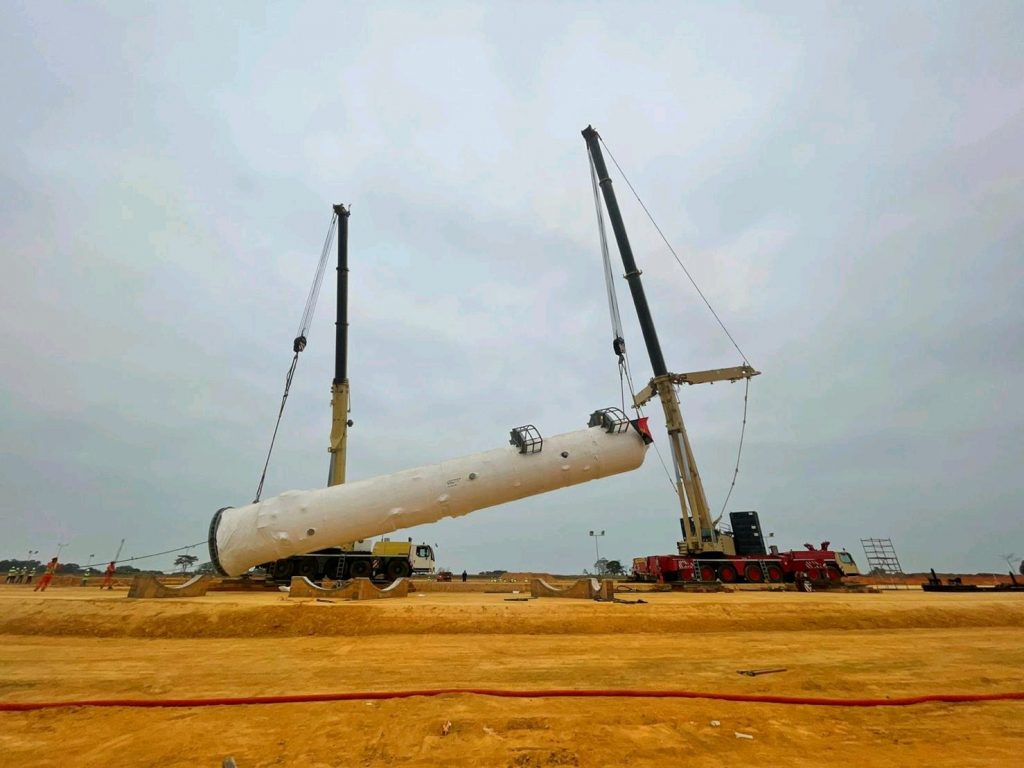
How decentralisation can support the expansion of Africa’s refining sector
by Souheil Abboud, Managing Director, VFuels LLC. Africa’s refining capacity has traditionally been concentrated around key hubs in Algeria, Egypt, South Africa and Nigeria. Combined, these four countries represent almost 75% of Africa’s installed refining capacity thanks to large-scale refineries that operate with various levels of reliability. However, Nigeria and South Africa have lost their status of refining hubs in recent years. Nigeria because of under-investment and lack of maintenance in its three state-owned refineries, and South Africa because of the gradual shut-down or conversion of its own facilities. As most African nations seek to secure their fuel supplies by building their own refineries, modular technologies and designs have been on the rise. While the trend first emerged out of Nigeria, it has quickly spread across the continent and modular refineries are now being built from West to Southern Africa. Modular technology solutions make it possible to address several critical challenges and needs of emerging markets, especially in Africa. They notably offer clients the opportunity to set up a refinery in approximately 13+ months from inception to start of production. This compares favorably with the 3+ years for a traditional “stickbuilt” refinery. Such decentralized assets also avoid a lot of the regular land, infrastructure, and logistics challenges associated with larger projects. Modular refineries have a quick return on investment (RoI) of approximately 2 years, enabling developers and their investors the ability to recoup their invested capital sooner. They offer a lot of flexibility when it comes to capex and opex, and the ability to gradually invest in additional modules to support capacity expansion over time. Finally, the modular refining technology makes project’s development simple and efficient. It notably requires less manpower and direct supervision, which in turn provides significant costs savings and reduced operating expenses. At VFuels, we have developed a solid track record of executing modular refinery projects for African clients. These include the 5,000 bpd Waltersmith refinery in Nigeria, the 10,000 bpd Conex refinery in Liberia, and the 30,000 bpd Cabinda refinery in Angola where factory acceptance tests (FAT) were completed in May 2022. As we continue to support Africa’s energy security agenda with modular refinery solutions, we also believe in the sustainability of African infrastructure assets. Earlier this year, we entered into a joint venture agreement with Earth Technologies to develop and install clean energy infrastructure for African oil & gas assets, including refineries. We also set up a collaboration with EMCO Engineering to develop water treatment facilities and deploy controls and digital solutions across various sectors in Africa.
Read more »In South Sudan, a private company has big ambitions to expand energy infrastructure
Since its establishment in 2012, Trinity Energy has grown into South Sudan’s largest independent energy business. The company is the first local entity to be registered to lift crude oil from South Sudan and has become one of the pillars of the country’s energy security. Its trading arm currently exports South Sudanese oil before re-importing finished petroleum products into the market. In March 2022, Hawilti spoke with Founder & Chairman Akol Ayii about South Sudan’s recovery prospects and Trinity Energy’s expansion plans. How do you assess South Sudan’s recovery prospects in 2022? The past two years have been challenging due to the headwinds presented by the COVID-19 pandemic. Besides the shutdowns in South Sudan as a market, there were also significant logistical challenges in importing petroleum products due to border shutdowns during the pandemic. This is because the majority of our refined products’ supplies are from the surrounding East African markets. Needless to say, Covid-19 has impacted the demand for petroleum products in South Sudan, and altered the timeline of key projects within the energy sector, including that of our own refinery. That said, the historic recovery of crude oil prices is now providing a boost to the country’s economy because oil revenues account for about 30% of the government’s budget. We expect a trickle-down effects across other sectors throughout 2022 and 2023. In the year 2020/21, the Government hadalso made strategic investments in thebuilding or roads and highways. We arenow starting to see the positive impact ofsuch infrastructure spending across theeconomy. Meanwhile, we remain optimistic that as a result of the peace agreement and the implementation of the Government ofNational Unity, the business environment in South Sudan will continue to improve.In 2021, the IMF estimated South Sudan’s real GDP growth at +4.5%, with the forecast for this year revised upward to+6.5%. This maintains the country as one of Africa’s fastest-growing economies. As the economy recovers, where do you see most investment opportunities in the oil & gas sector? Oil revenues represent on average 25-30%of South Sudan’s budget so the sector iscritical to the wellbeing of the economy.The government has maintained itsambition to restore crude oil productionto pre-conflict levels of 350,000 barrels ofoil per day (bopd), which wouldsignificantly boost economic growth. The energy security policy of the countryis two-folded: on one hand enhanceexploration activities and bring more oilwells into production, and on the otherset up South Sudan’s own petroleumrefinery. As part of efforts to boost upstream activity, the country’s first licensing round since independence was launched in 2021. It is anticipated to be an economic accelerator spurring investments by international oil investors and service companies into the country’s emerging oil and gas sector. In that context, what updates do you have on Trinity Energy’s expansion plans? Trinity Energy has already invested closeto $13m in the roll-out of its current retailnetwork of 20 fuel stations in SouthSudan. Our focus has been and remains onconstructing and acquiring an additional100 outlets in the country within the next4 years. We plan for 40 of these stations tobe in Juba, while the other 60 stations willbe spread in all the 10 states across SouthSudan. As a key proponent of the Intra-Africa trade, we are also actively pursuing growth opportunities in East, Central, andSouth Africa. We already have a presence in Kenya and recently entered theDemocratic Republic of Congo. Moving forward, we are developing opportunities in Malawi, Somaliland, and Uganda and are launching four new fuel retail stations in Nairobi in the first quarter of 2022. Another significant component of ouractivities is aimed at expanding ourstorage facilities in South Sudan. Wecurrently own 6 million litres of fuelstorage at our depot in Nesitu, with anadditional 2 million litres of storage underdevelopment. To further support ourgrowth strategy, we will be constructingan additional 50 million litres of storagecapacity in Koda, just outside Juba. Wehave also engaged Nilepet for theconstruction of a storage terminal inBentiu. We target to leverage these storage facilities to supply petroleum products into neighbouring countries includingEthiopia, the Central African Republic, and the D.R.C.
Read more »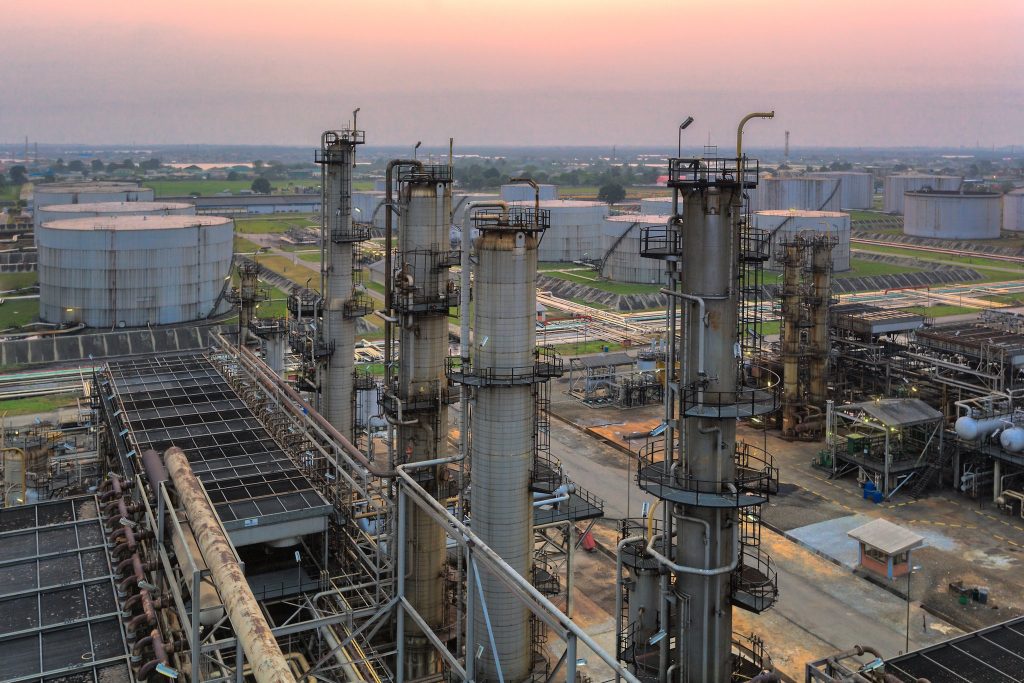
Nigeria: FEED contract awarded for new 100,000 bpd refinery in Port Harcourt
Maire Tecnimont has just announced that its subsidiary Tecnimont has been awarded a new FEED contract by African Refineries Port Harcourt Limited (ARPHL) for a new 100,000 barrels per day (bpd) refinery in Nigeria. The new plant is expected to be built inside the existing Port Harcourt Refinery complex, where Tecnimont is already rehabilitating the refinery there under a $1.5bn EPC contract. The FEED contract includes a feasibility study for the production of sustainable aviation fuel (SAF, or Biojet) based on NextChem technology, Tecnimont said. ARPHL is a consortium of Nigerian and foreign investors that won a bid to run and operate the deep conversion refinery under a PPP scheme, according to its website. ARPHL notably signed a 64-year lease with the NNPC Ltd for 45ha of land within the existing complex of the state-owned Port Harcourt Refinery. The plant is expected to be commissioned in 2025. Details on African refineries and upcoming projects can be found within the Hawilti+ research terminal and are analysed every quarter within our Quarterly Refineries Watch.
Read more »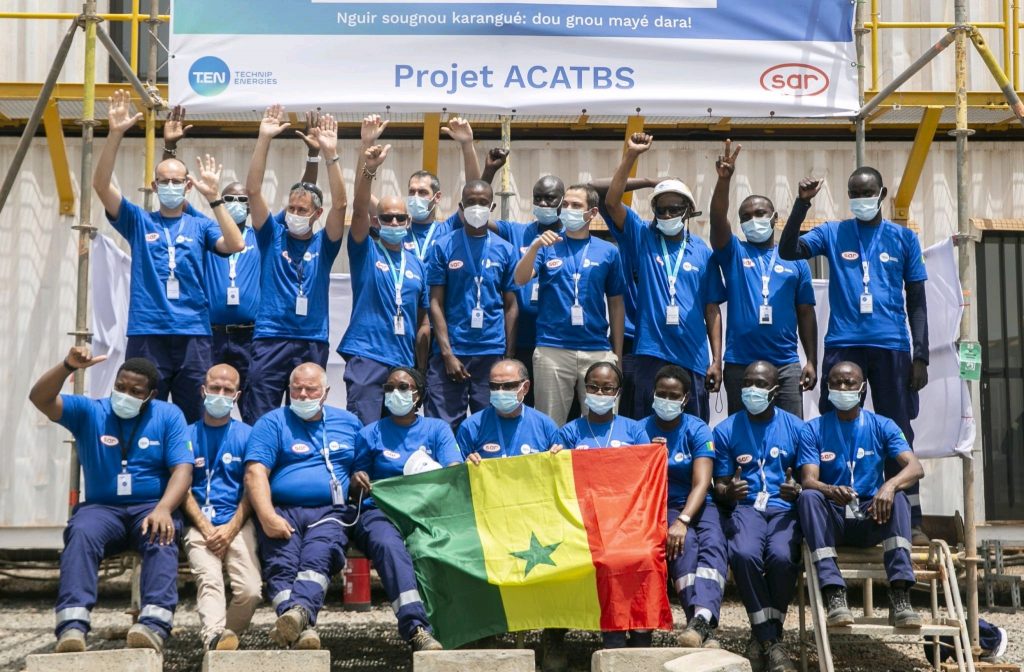
TechnipEnergies completes Senegal’s refinery expansion project
On June 29th, TechnipEnergies Country Director for Senegal, Franck Pliya, announced the holding of the last Steering Committee meeting of the ACATBS project at the SAR Refinery in Dakar. The contractor had been involved in a significant upgrade and expansion of the refinery over the past months, which culminated in a facility shutdown in Q1 this year to synchronise several new units. The ACATBS project (projet d’Augmentation de Capacité et d’Adaptation des unités pour le Traitement du Brut Sénégalais) notably targeted the expansion of the refinery’s capacity from 1.2m to 1.5m tonnes per year (tpy). It consisted of the installation of a pre-flash column to increase production capacity by 30%, and the extension of the reforming unit to enable the processing of domestic crude oil from the Sangomar offshore field, where first oil is expected in 2023. “Through this project, we have achieved 1.2m hours without accident, remained on budget, and managed to ensure an 80% participation from Senegalese companies with a local workforce of over 500 mobilised on site during the peak of the project,” Franck Pliya wrote. SAR mostly imports crude oil from Nigeria (especially Erha and Bonny Light) before refining it for distribution in Senegal and the landlocked subregion, especially in Mali. Its facilities include distillation units, a catalytic reformer and a MEROX unit to treat kerosene. The facility was initially commissioned in 1963 and is owned at 46% by the state-owned national oil company PETROSEN. Full details on the African refining sector can be found in Hawilti’s Quarterly Refineries Watch, available within your Hawilti+ research terminal (plus.hawilti.com).
Read more »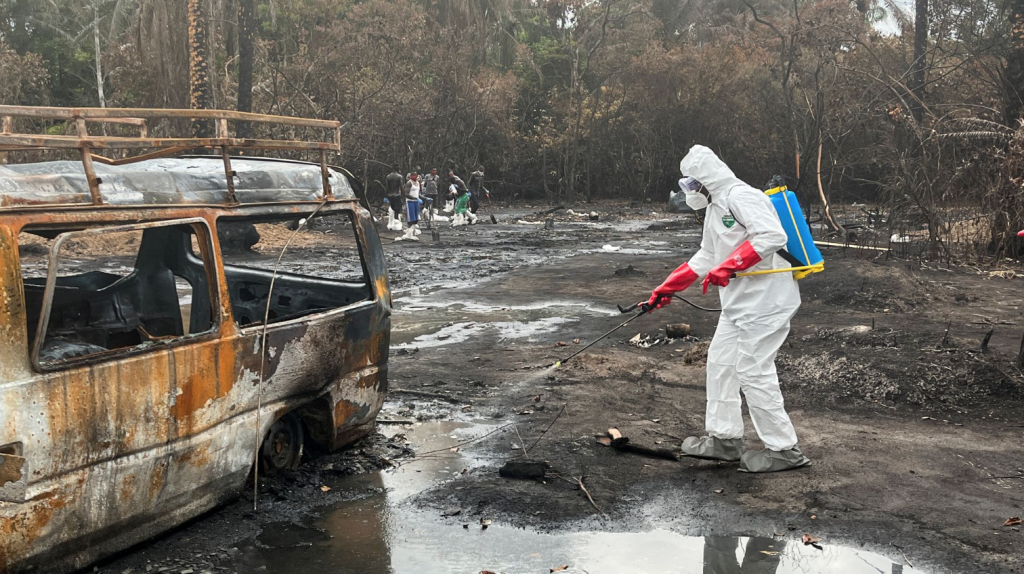
Tragedy hits Niger Delta as illegal bunkering site explosion kills 100
Over 100 people lost their lives last weekend at an illegal crude oil bunkering site at the Abaezi forest, in the Ohaji-Egbema Local Government Area of Nigeria’s Imo state. The illegal oil refining depot bordered Nigeria’s Rivers and Imo states and is one of many such sites operated across the Niger Delta by illegal refiners seeking to profit from the country’s oil reserves. The explosion happened as the government has intensified its crack down on pipeline vandalism and crude theft – which many use to secure the feedstock required for their illegal refining activities. These remain carried out outside any supervision, sometimes with makeshift equipment that often causes fatal accidents and heavy pollution. Several vehicles that were in a queue to buy illegal fuel were reportedly burnt by the fire outbreak that took the lives of over 100 people.
Read more »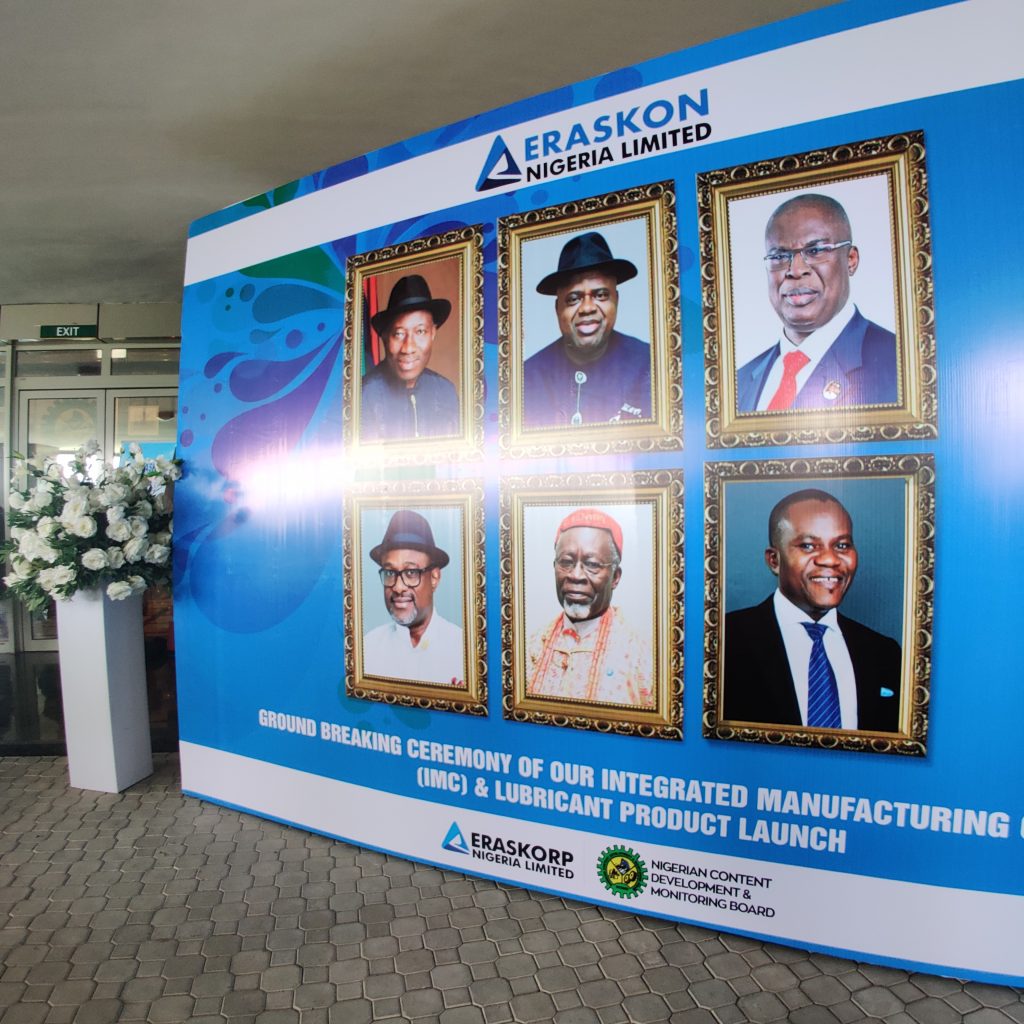
Eraskon Nigeria breaks ground on new industrial manufacturing complex
During a grand ceremony held in Yenagoa earlier today, Eraskon Nigeria has officially broken ground on its 64,000 litres per day lubricants blending plant at Gbarain in Bayelsa State. The groundbreaking was preceded by a ceremony marking the launch of the company’s new ERASKO GOLD lubricants products line. Both functions were attended by key Nigerian officials, including former President Dr. Goodluck E. Jonathan and Engr. Simbi Wabote, Executive Secretary of the Nigerian Content Development & Monitoring Board (NCDMB). Eraskon Nigeria is the company executing the project as a joint-venture between ERASKORP Nigeria and the NCDMB. The facility is expected to be commissioned in December 2022 and will help in meeting increasing domestic demand for high quality lubricants, engine oil, transmission fuels, engine coolers and specialty products such as waxes. “Nigeria consumes 800 million litres of engine oil and lubricants every year and its consumption continues to grow by 5% per annum,” said Engr. Simbi Wabote during the ceremony in Yenagoa. “Nigeria’s in-country blending capacity stands at only 150 million litres so we have a huge gap that remains met by imports,” he added. “Eraskon Nigeria’s project will result in the building of a world-class facility producing a range of high-quality lubricants for the Nigerian market,” declared Maxwell Oko, Vice Chairman and CEO at ERASKORP. “This plant is the first step in realizing our vision to build an industrial conglomerate in the Niger Delta,” he added. The lubricants blending plant is being built on 8ha of land, out of a total 50ha acquired around Shell’s Gbarain gas hub. The company envisions to further integrate its operations in the future by producing drilling and production chemicals, turbine oil and house products such as detergents and aerosols. Gbrain is increasingly emerging as a local content hub housing some of Nigeria’s newest energy infrastructure. The 12,000 barrels per day (bpd) Azikel Refinery is currently nearing completion at the same location, while Rungas expects to commission its LPG composite cylinder manufacturing unit there as well this year.
Read more »
VFuels to offer renewable energy solutions for African oil & gas assets
VFuels LLC, the American oil and gas engineering, design and fabrication firm that has already delivered several modular process equipment on the continent, has entered into a joint-venture agreement with Earth Technologies to develop and install clean energy infrastructure for African oil & gas assets, including refineries. Earth Tehnologies is a renewable energy company with a demonstrated track record in the development, engineering, procurement, construction and consultancy of renewable energy projects. Both companies are maximizing the synergies in their capacities to offer attractive and clean energy solutions for infrastructure owners and operators on the continent. VFuels is a known player in Africa, where it has successfully executed three modular refineries so far. Its first one was commissioned at Ibigwe in Nigeria for Waltersmith Refining & Petrochemical Co. in 2020. The company also recently completed the 10,000 bpd Monrovia Refinery in Liberia for Conex, a Gemcorp portfolio company. It is now at full speed on the construction of the 30,000 bpd Cabinda Refinery in Angola. As VFuels continue to work on expanding Africa’s refining infrastructure, it will now be able to propose clients additional solutions to make their assets more sustainable and reduce greenhouse gas emissions.
Read more »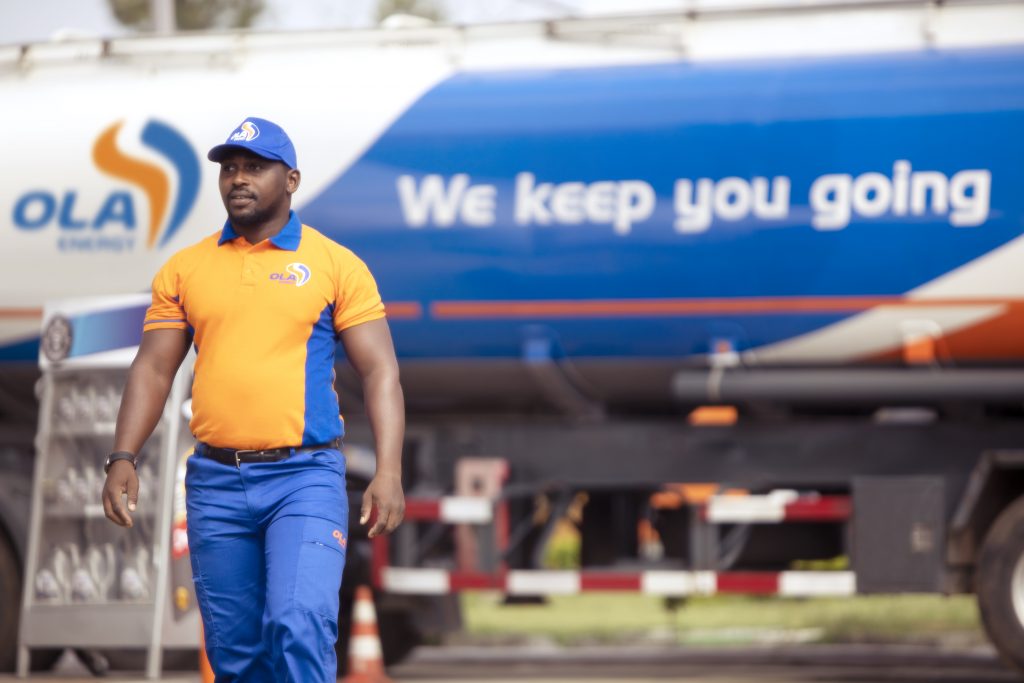
Africa’s petroleum retail sector to undergo more M&A activity
As Africa’s petroleum retailers seek to achieve better economies of scale, the sector will continue to experience mergers and acquisitions (M&A) activity in coming years, according to a new study by pan-African investment research agency Hawilti. Challenging operating and regulatory environments in Africa have already led to the exit of most major international oil marketing companies, to the benefit of national and regional actors. But additional consolidation is expected, especially around a few well-established companies. Four players in particular known as “The Big 4” are emerging as leaders in the marketing and distribution of petroleum products on the continent: TotalEnergies, Vivo Energy, Engen and OLA Energy. Together, these companies are increasingly shaping up supply and distribution dynamics on the continent as consumption rises. Meanwhile, the sector’s operating environment continues to be marked by several trends that will affect performances and strategies moving forward. A major one, particular to Africa, is the small size of the continent’s refining industry. Small, old and uncommercial refining facilities continue to make most African markets net importers of petroleum products. While Africa’s refining capacity stagnates, the continent’s demand and consumption for petroleum products keeps increasing at some of the world’s fastest rates, which in turn affect supply dynamics for oil marketers and the demand for storage infrastructure. The second major trend affecting the sector is that of decarbonisation. Oil marketers are increasingly embracing sustainability, leading to the diversification of the energy supplied to African retail and commercial customers. Beyond the ongoing solarisation of several retail stations on the continent, oil marketers are also diversifying their offering to offer clean energy products and hybrid solutions to their commercial clients. Natural gas products, especially LPG and CNG, are notably expected to witness to most significant growth in Africa during the 2020 – 2030 decade. The demand for clean cooking fuels in Africa is notably growing by double-digit figures as governments incentivise the switch to clean cooking for public health and environmental reasons. Titled “Petroleum Products’ Distribution in Africa: the Emergence of the Big 4,” the report is now available for all users of the Hawilti+ research terminal.
Read more »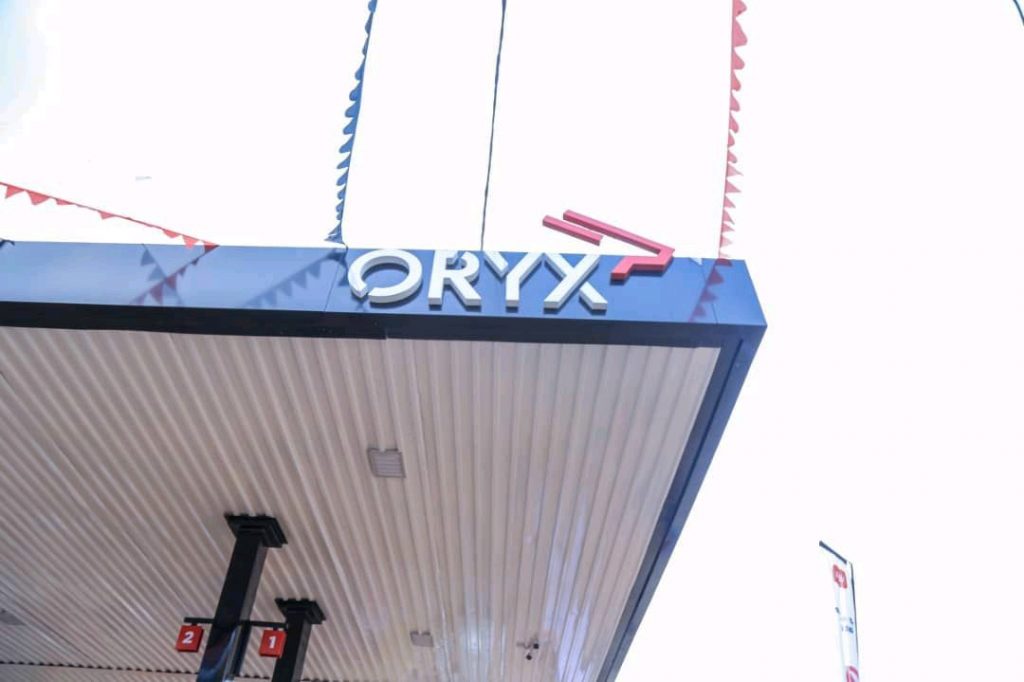
Oryx Energies acquires part Sonacop’s retail network in Benin
Oryx Energies, a provider of energy products and services in Africa, has announced it has taken over part of the retail network of Benin’s national company for the commercialization of petroleum products, Sonacop. As part of the transaction, Oryx Energies Benin has taken over 63 of Sonacop’s service stations. The execution of the new Oryx brand started on five of these at the end of January 2022.
Read more »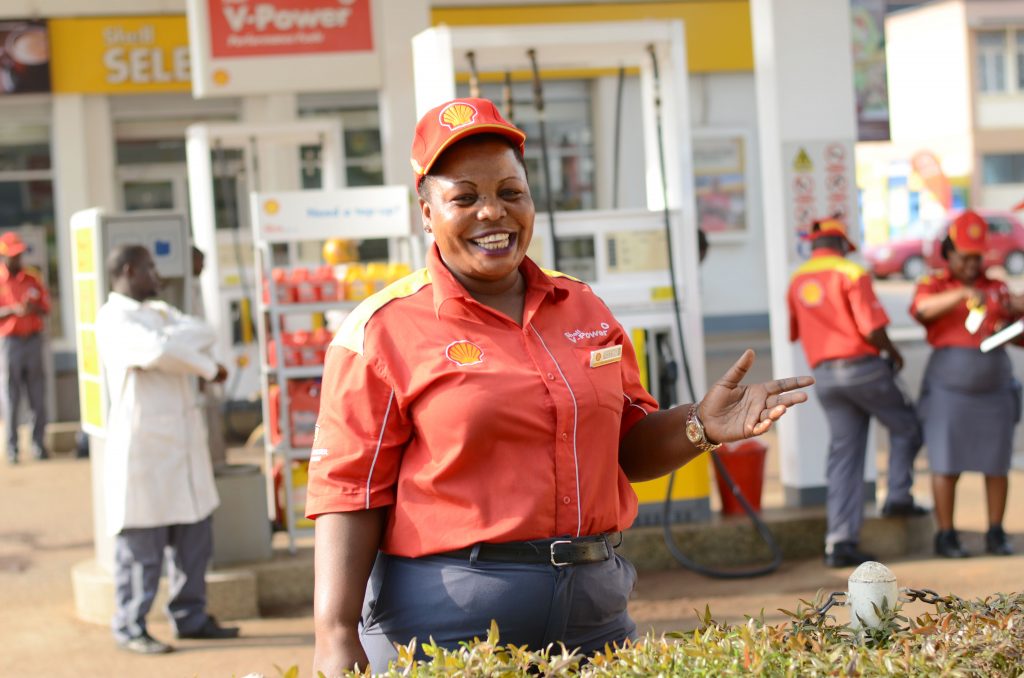
Vitol to acquire Vivo Energy’s remaining shares for approximately $2.3bn
Vivo Energy has announced it has reached an agreement on the terms of a recommended cash offer under which Vitol will be acquiring the entire issued and to be issued share capital of Vivo. Vitol will only be acquiring the shares it does not already own in Vivo Energy, via a BidCo, a company indirectly owned by Vitol Investment Partnership II Ltd. The total cash value of the deal is valued at $2.3bn. In December 2020, Vivo Energy’s key shareholders included Vitol (36.1%), Helios Investment Partners (27.23%) and Petronas Marketing International (3.93%). The announcement follows several attempts by the Vitol Group to acquire Helios Investment Partners’ shares in Vivo Energy. “Following a series of negotiations, BidCo and Helios agreed a price at which both parties would be willing to transact at a purchase price of US$1.79 per Vivo Share,” Vivo Energy said in a statement. Both companies were partners and founding shareholders of Vivo Energy, a company born of Shell’s divestment from all its African fuel retailing business in 2011. Vivo eventually completed an initial public offering in May 2018, pursuant to which its shares were admitted to trading on the Main Market of the London Stock Exchange and admitted to listing on the Official List, with a secondary listing on the Main Board of the JSE.
Read more »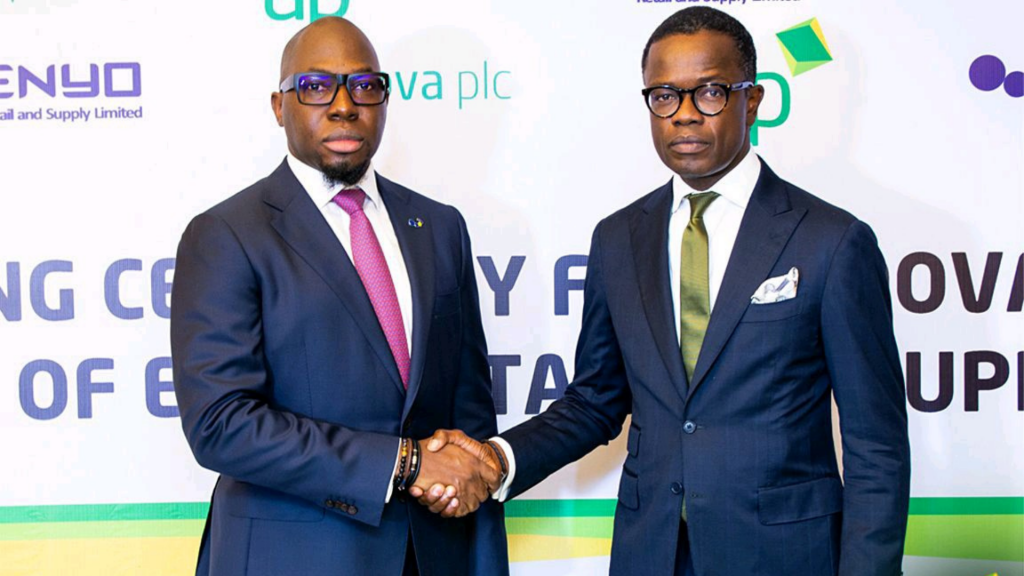
Ardova Plc completes acquisition of Enyo Retail & Supply Ltd in Nigeria
Nigerian energy and oil marketing company Ardova Plc has announced the completion of its 100% acquisition of Nigerian fuels retailing company Enyo Retail & Supply. Through this transaction, Ardova has grown its fuel retail stations by 95, bringing its total network in Nigeria to 545. The acquisition is part of ongoing consolidation in the Nigerian downstream market as oil marketers seek to achieve economies of scale to boost profitability. Earlier this month, RainOil also completed its acquisition of 63.6% of the shares of Eterna Plc though its investment arms, Preline Ltd (60.9%) and Norsworthy Investments (2.6%).
Read more »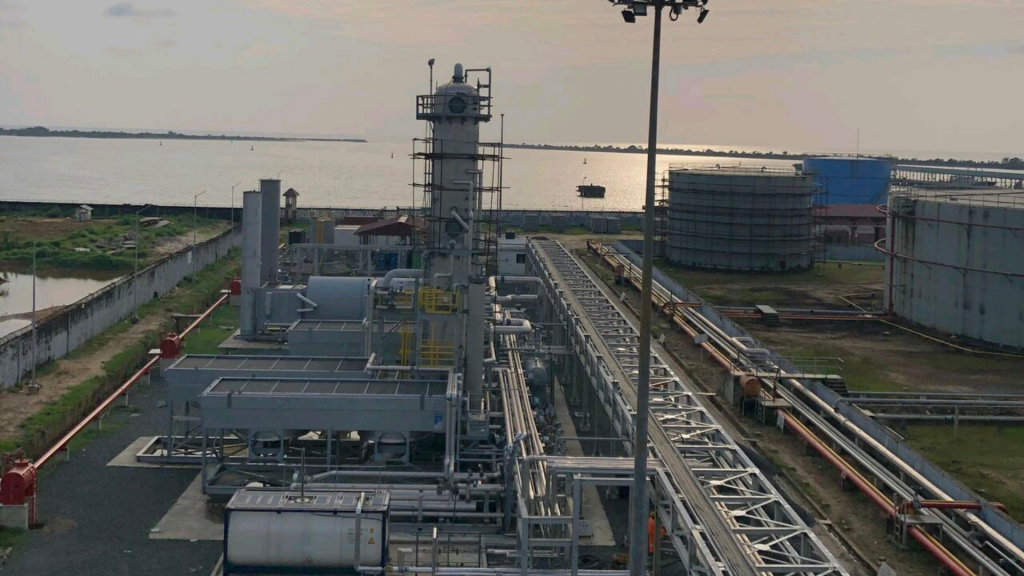
Conex Oil & Gas completes acquisition of TotalEnergies’ assets in Liberia and Sierra Leone
In a statement issued earlier today, Conex Oil & Gas has announced taking over with immediate effect Total Liberia Inc. and Total Sierra Leone Ltd. Both entities have been renamed Conex Oil & Gas Liberia and Conex Oil & Gas Sierra Leone. The move follows the signing of agreements with TotalEnergies back in March 2020 for Conex to acquire the French major’s assets in both countries. These notably consist of a network of 63 service stations, general trade fuel sales and petroleum products import and storage operations. In parallel, Conex has completed construction of its 10,000 barrels per day (bpd) refinery in Liberia’s capital Monrovia. The facility was fabricated in Houston by VFuels Oil and Gas Engineering before being shipped and assembled in Liberia. The company is currently sourcing crude oil feedstock before starting up commercial operations.
Read more »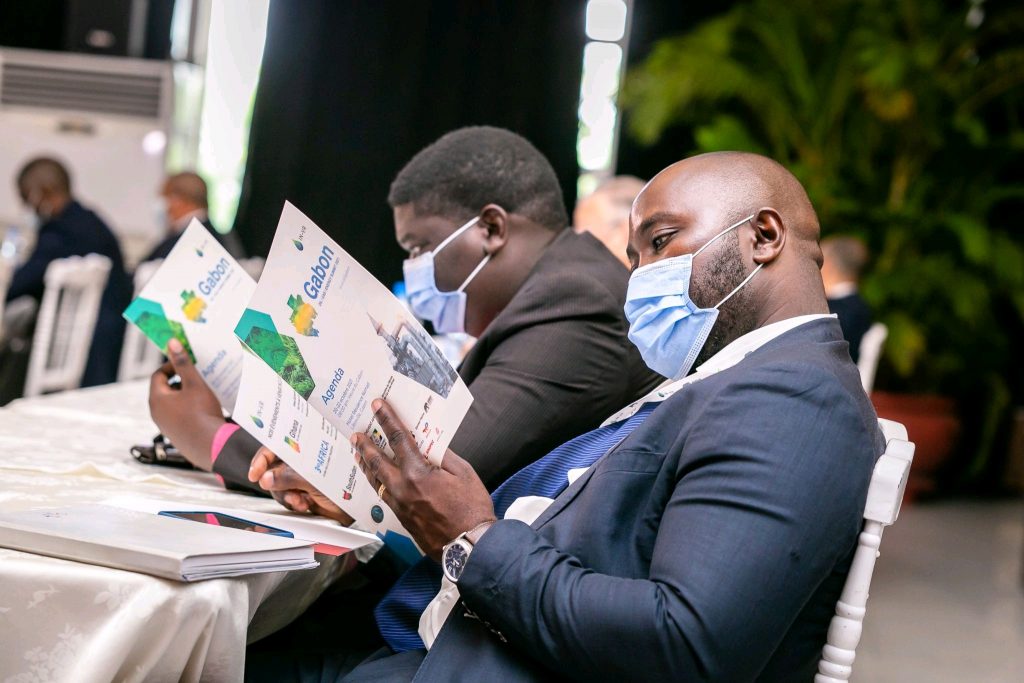
Gabon exposes clear vision on what to do with its natural gas
Gabon is thought to hold anywhere between 3 to 5 trillion cubic feet (Tcf) of gas, although the country remains a small gas producer. To date, most of its gas has remained on the ground or flared – with only small quantities monetised domestically for power generation in Libreville and Port Gentil. But as Gabon implements an ambitious “Green Gabon” environmental policy and seeks to diversify its economy, the country wants to cut routine flaring altogether and monetise it for the benefits of its industries, households, and economy. The recent Gabon Oil, Gas & Energy Summit organized by IN-VR in Libreville last October notably exposed the alignment of most parties on the need to monetise gas instead of flaring it. A New Gas Strategy in the Making To achieve its gas ambitions, Gabon is currently working on a new Gas Master Plan with Wood Mackenzie and the World Bank’s Global Gas Flaring Reduction Partnership (GGFR). The plan will have four major ambitions: reduce gas flaring, increase energy security, expand access to affordable energy and attract investments into gas projects. Gabon’s flared gas currently emits about 2,244,500 tonnes of CO2 per year, enough to generate 500 MW of power. Natural gas also features prominently within the country’s 2021-2023 Plan to Accelerate Transformation (PAT), which includes a dedicated Gas Task Force headed by former Gabon Oil executive Yann Pierre A. Livulibutt Yangari. “Our gas strategy is targeting actions across the whole value-chain. In upstream, we want to get operators to explore for gas and stop considering it as a risk. In midstream, we want to see flared gas being monetised for the benefits of the Gabonese economy. Finally in downstream, we want to improve gas supplies especially of liquefied petroleum gas (LPG), compressed natural gas (CNG) and liquefied natural gas (LNG),” Yangari said during IN-VR’s summit. As it stands, Gabon intends to primarily monetise flared gas to generate power, manufacture urea and produce methanol. These are the major industries identified based on existing gas reserves and technology available from existing investors and operators in the country. Once these are developed, hopes are that by-products would follow, especially when it comes to LPG, CNG (Autogas) and micro-LNG. Source: DGEPF “We are working on supporting the development of a gas-based economic network to support local content development, promote technology adoption and support industrialisation,” Yangari added. While Gabon has not discovered enough gas reserves to justify the development of more significant industries like LNG for export or gas-to-liquids, the country remains hopeful. Its 12th Licensing Bid Round has resulted in the award of new exploration blocks, and upcoming drilling campaigns could result in new gas discoveries supporting further gas developments in the medium-term. To justify the investment, Gabon is putting forward its growing industrial base driving demand for both power and gas. Last September, the Gabon Power Company (GPC) notably signed a landmark Concession Agreement with Wärtsilä for the development, supply, construction, operation, and maintenance of a new 120 MW gas-to-power project in Owendo, next to the capital city of Libreville. But beyond just the power sector, Gabon wants to provide gas to its mining, forestry, agro-industry, and steel industries. In parallel, its logistics network is expanding with railways and maritime industries both positioned to be potential off-takers sooner than later. An Opportunity for Small-Scale Gas Projects Gabon’s vision relies on the monetization of gas into CNG for transport and micro-LNG for industries. A key strategy is to expand the country’s CNG network but use micro-LNG for any remote industries located over 400km from producing fields, especially mining industries. To support such expansion, the country is seeking investors across several projects such as LPG plants, LNG and CNG plants, LNG and CNG storage, onsite regasification and bi-fuel conversion. Chief amongst them is the need to secure 30,000 cubic metres of additional butane storage capacity, up from only 4 to 5,000 cubic metres now. Source: DGEPF Port Gentil features prominently within that vision as a pilot city to grow the CNG industry. It is there that Perenco already runs a private gas retail station for 40 of its own vehicles. Now, Gabon wants to grow the market by constructing public CNG stations in partnership with oil marketers and develop a new pricing structure for CNG. The aim is clear: reduce petroleum products imports while generating additional revenues from domestic gas. Perenco Takes the Lead Perenco will be a key actor of that transition to gas. The operator is the country’s sole commercial gas producer and currently supplies gas feedstock to the power stations of Port Gentil and Libreville. In fact, 100% of Port Gentil’s power relies on Perenco’s gas while 70% of Libreville’s power is generated from the operator’s gas supply. “We have invested $500m into the development of a 400km onshore and offshore gas gathering system in Gabon that supplies gas to power plants but also key industries such as Sobraga. In the process, we created 150 jobs,” Director General Adrien Broche said during the IN-VR Summit. Perenco is now increasing its investments and leveraging on its existing infrastructure to commission a 10 to 15,000 tonnes per annum (tpa) LPG plant in Batanga by 2023. Batanga is currently the cornerstone of its gas business and is equipped with enough compressors to compress gas to over 100 bars so it can be transported across the country. “The Libreville and Port Gentil power stations currently represent an off-take of about 40 MMscfd,” Broche explained. “While only half of that capacity was coming from flared gas, we are installing additional compression capacity so all feedstock supplied to power plants comes from previously flared gas. We have installed two onshore compressors this year and are now expecting additional ones for offshore operations. By mid-2022 or early 2023, all gas we send onshore for power generation will come from previously burned resources,” he added. The Need for an Industry and Policy Consensus But to furter monetise gas and create jobs, Gabon must first find a way to aggregate
Read more »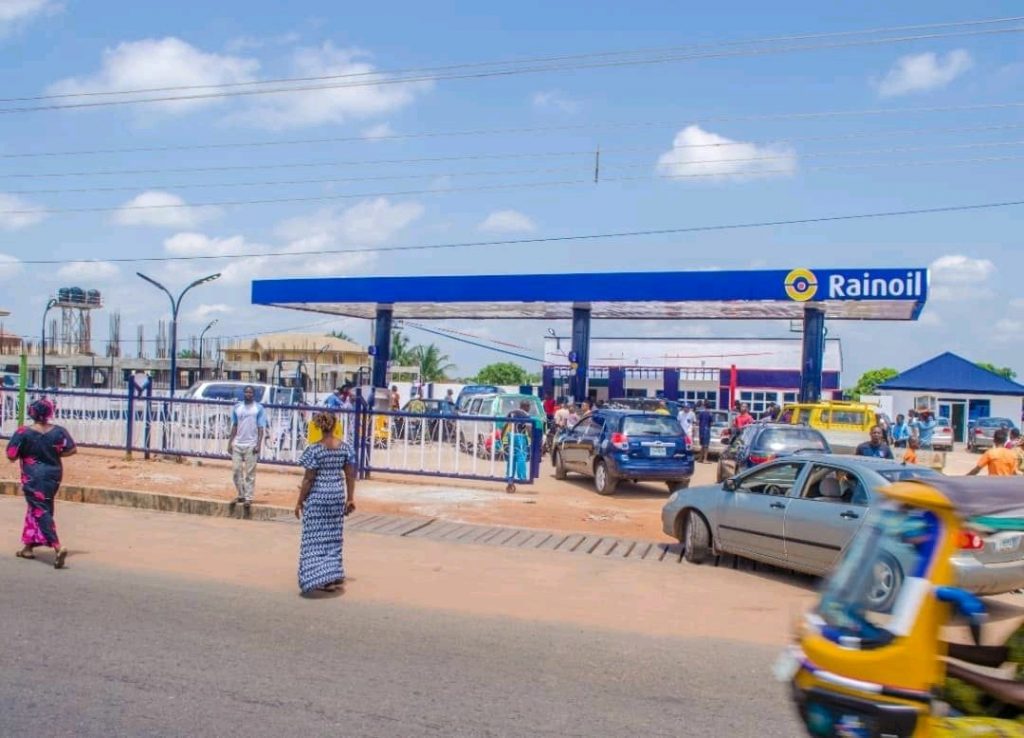
Nigeria: RainOil completes acquisition of majority stake in Eterna Plc
RainOil has completed its acquisition of 63.6% of the shares of Eterna Plc though its investment arms, Preline Ltd (60.9%) and Norsworthy Investments (2.6%). The Sale and Purchase Agreement (SPA) was executed on August 25th, 2021. The transaction had been reported in Hawilti’s Q3 M&A Watch, available within the Hawilti+ research terminal. The acquisition of Eterna will further consolidate RainOil’s market presence in Nigeria. Over the past two years, the Nigerian company has been investing heavily into its asset base which currently include three ultra-modern petroleum product storage deports in Delta, Cross River and Lagos, a 8,000 metric tonnes LPG storage facility in Lagos, over 100 retail outlets and a fleet of over 140 petroleum product tank trucks. The Nigerian downstream sector is going through significant consolidation as players seek to expand their reach and network to benefit from economies of scale in a market where PMS remains heavily subsidised and regulated. In January this year, Ardova Plc announced it was acquiring Enyo Retail & Supply, a private oil marketer with 95 retail stations in Nigeria.
Read more »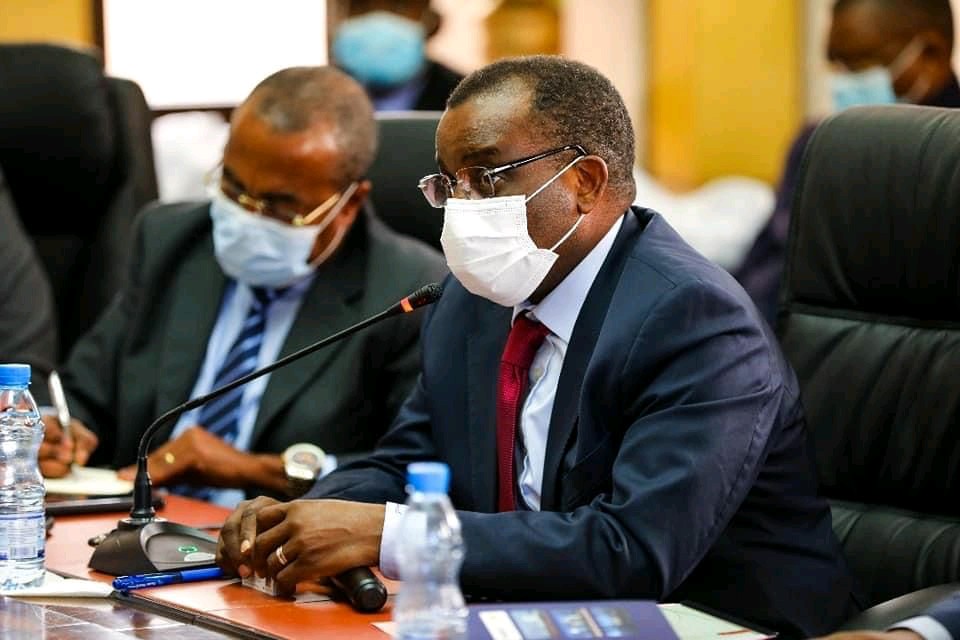
Gabon on the move: what you need to know ahead of the Gabon Oil, Gas & Energy Summit in Libreville this week
Nested in the Gulf of Guinea, Gabon has built itself a reputation of environmental stewardship and sustainable development of its natural resources. The country of less than 2.5m notably hosts Africa’s largest forest elephant population and is covered at 88% by rainforest. Despite being an established offshore hydrocarbons province, Gabon is steadily diversifying away from oil. A public-private partnership with ARISE IIP resulted in the establishment of one of Africa’s most modern and efficient free zones now serving a growing industrial and mining base. The country is in fact one of the world’s top producers of manganese, of which it exported almost 4m tonnes in the first half of the year. Gabon has also successfully industrialised its wood industry to become a recognised exporter of timber: between January and June 2021, the country produced over 1 million m3 of logs. Gabon’s economy remains fairly diversified compared to that of its African neighbours. Its oil & gas sector’s contribution to the GDP stood at 37.7% in 2020 and represented 33% of government revenues last year. Oil exports also accounted for 70% of total export revenues. Maintaining the pace of investment in the country’s hydrocarbons value-chain remains a priority for the government, especially as it seeks to develop gas-based economies and use oil revenues to invest in sustainable infrastructure and the conservation of its environment. A Focus on Reversing Production Decline Gabon is member of the Organisation of Petroleum Exporting Countries (OPEC) and produced an average of 183,000 barrels of oil per day (bopd) between January and September 2021. This makes it sub-Saharan Africa’s fourth largest producer, behind Nigeria, Angola and Congo-Brazzaville and more or less at par with Ghana. Production has been in decline for several years and has stagnated in the recent past. Gabon launched its 12th Licensing Bid Round before Covid19, which it is just concluding now. The round generated relatively strong interest given market dynamics, and award letters started being issued this month with BW Energy provisionally securing two blocks along with partners Panoro Energy and VAALCO Energy. Source: DGEPF The award of new exploration acreage is much needed in order to encourage seismic acquisition and exploratory drilling and ultimately maintain production in the medium-term. Exploration has so far been a miss this year, with BW Energy’s Hibiscus Extension appraisal well (DHIBM-2) encountering water in the first half of the year, and its Hibiscus North exploration well (DHBNM-1) failing to deliver on pre-drill resource estimate in July. An Independents’ Market Gabon is an independents and national oil companies (NOCs)’ game. Shell Gabon sold all its assets in the country to Assala Energy in November 2017, and Total Gabon sold seven of its non-operated mature fields and operatorship of the Cap Lopez Oil Terminal to Perenco in July 2020. Beyond Assala Energy and Perenco, Gabon’s upstream sector is dominated by Maurel & Prom, VAALCO Energy and BW Energy along with a few NOCs such as Petronas. TotalEnergies remains the only IOC still operating upstream assets in the country. Gabon continues to offer significant opportunities for independents, both onshore and offshore. In February 2021, Panoro Energy acquired Tullow Oil’s 10% working interest in BW Energy’s Dussafu Marin Permit. A New Strategy to Monetise Domestic Gas Gabon has been working for a few years on a new strategy to monetise gas to generate additional electricity and develop new gas-based industries. The move benefits from significant political will and support and is one of the key pillars of the country’s new three-year plan over the 2021-2023 period, dubbed Plan to Accelerate the Transformation (PAT). Because Perenco represents most of the country’s operated gas production, it will play a major role in the development of Gabon’s domestic gas market. The company completed this year studies and plans for the new 10,000 metric tonnes Batanga LPG plant, where construction is expected to start before the end of the year. In July 2019, Gabon’s Ministry of Petroleum, Gas and Mines had also signed an agreement giving the Olowi Field to Perenco as its new operator. The field was developed between 2005 and 2018 by Canadian Natural Resources and is now to be redeveloped under an integrated gas project. Source: DGEPF Finally, an expanding gas industry will benefit the power sector. Gabon already runs several gas-to-power facilities and in September 2021, the Gabon Power Company (GPC) signed a landmark Concession Agreement with Wärtsilä for the development, supply, construction, operation, and maintenance of a new 120 MW gas-to-power project in Owendo, next to the capital city of Libreville. A Diversifying Energy Basket Beyond gas, Gabon is also expanding its energy sector with the development of its solar and water resources. Several hydropower plants are currently being developed, When it comes to hydroelectricity, Meridiam and the Gabon Power Company successfully reached financial close on the 35 MW Kinguélé Aval in July this year. Additional facilities include the 15 MW Dibwangui hydropower plant and the 73 MW Ngoulmendjim hydropower plants, whose power purchase agreements (PPA) were signed with Eranove in 2018. Solar energy is also making its entry into the country’s grid with the signing last August of a contract with the Turkish group Desiba Energy for the construction of a 20 MW solar power plant in Doubou, in the province of Ngounié. To find out about investment and business opportunities in Gabon, register for IN-VR’s Gabon Oil, Gas & Energy Summit hybrid conference taking place in Libreville and online between October 20th-22nd. More information at https://www.in-vr.co/gabon. All details on ongoing and future projects across Gabon’s energy sector are available within your Hawilti+ research terminal.
Read more »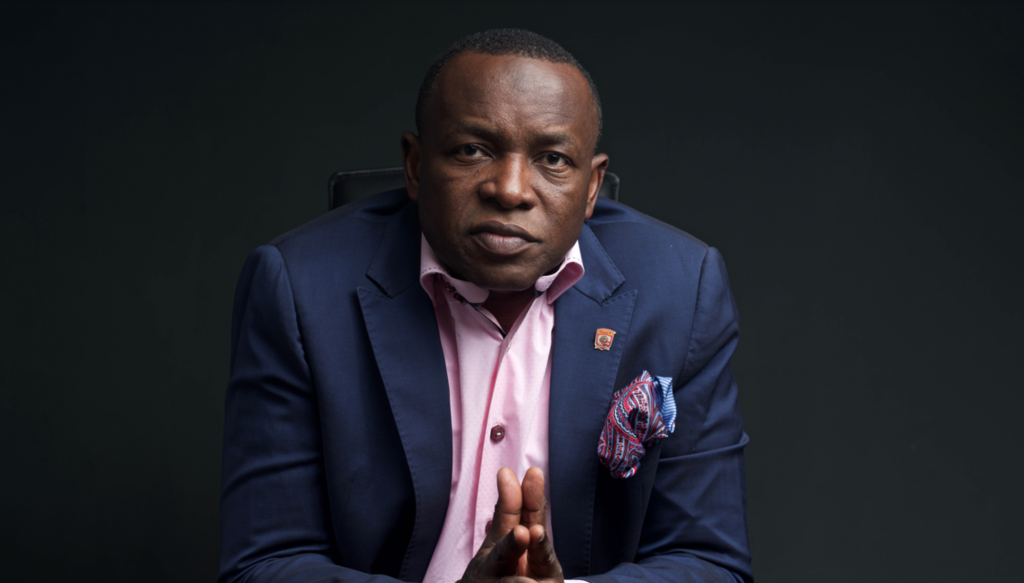
Nigeria’s Sahara Group commits $1bn to LPG vessels and infrastructure in Africa
Nigerian energy infrastructure conglomerate, Sahara Group, has announced an investment of $1bn into Africa’s liquefied petroleum gas (LPG) value chain during the African Refiners and Distribution Association (ARDA) conference 2021 in South Africa this week. “Sahara, through its subsidiary, WAGL Energy Limited is already working towards investing $1 billion to ramp up its LPG fleet and terminal infrastructure over the next five years. In addition to the vessel fleet, Sahara is in the process of building over 120,000 metric tonnes of LPG storage in eleven countries,” he said. In October 2020, Sahara and Côte d’Ivoire’s national oil company PETROCI notably broke ground on a new 12,000 MT LPG storage terminal on the outskirts of Abidjan. The company has also earmarked additional such projects in Nigeria, Senegal, Ghana, Tanzania and Zambia while considering additional investment elsewhere on the continent.
Read more »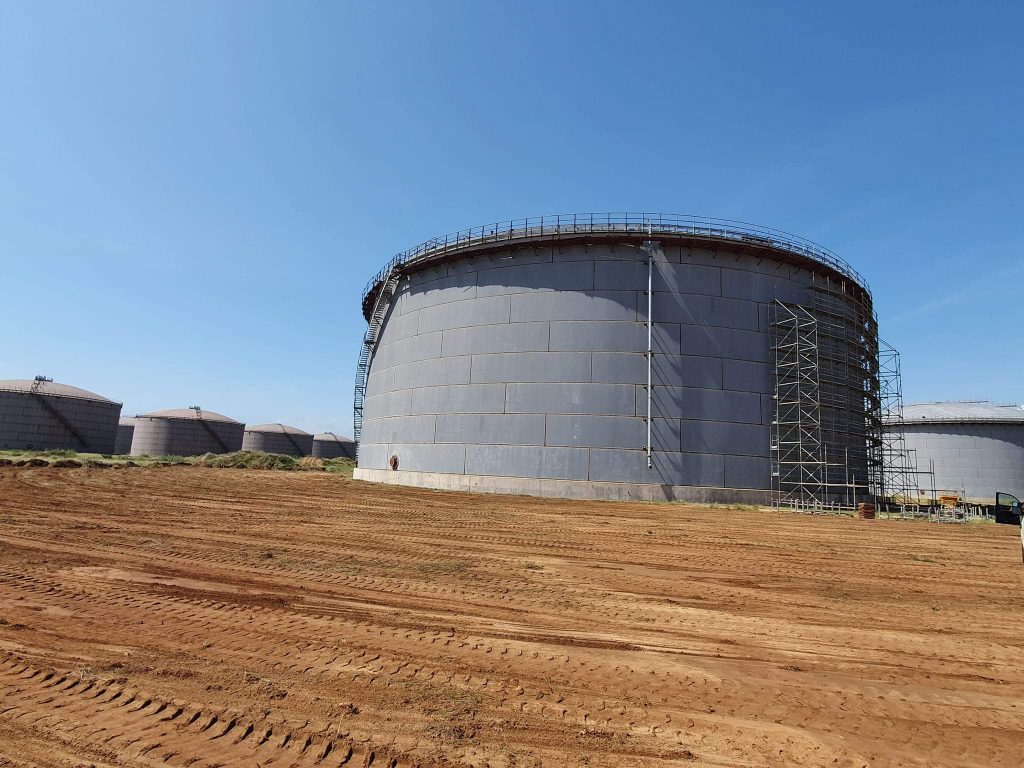
Angola lays first stone for new Barra do Dande Ocean Terminal
Yesterday, Sonangol has officially laid the foundation stone for its landmark Barra do Dande Ocean Terminal (Terminal Oceânico da Barra de Dande, TOBD) in the Bengo Province north of Luanda. The infrastructure project has been in the making since 2013 but delayed several times by years of recession since 2016. It represents a massive step forward for Angola’s downstream sector and aims at turning Barra do Dande into the country’s main platform for the receiving, storage and distribution of petroleum products. Its official launch follows the award of key contracts this month to its EPCC contractor, the Brazilian Odebrecht, along with the supervision contract to DAR Angola and the Environmental Impact Study to SOAPRO. The terminal will be developed in phases and at a cost of $500m (Kz. 317 bn), ultimately targeting the construction and installation of 29 storage tanks connected to maritime infrastructure such as breakwater, berths and unloading lines. Its phase 1 will include 16 tanks with a combined storage capacity of 582,000 m3 of petroleum derivatives including diesel (320,000 m3), gasoline (160,000 m3) and LPG (102,000 m3) reserved for the domestic market, and will support 3,500 jobs during its construction phase. It involves three different units: the first one covers the development of the 16 storage tanks while the second one involves the construction of a petroleum products and LPG pipeline and the third one the construction of two berths with a total capacity of 150,000 DWT. A second phase will add an additional 13 tanks to bring total storage capacity to 782,500 m3 and enable the export of surplus petroleum products. The project fully integrates with Angola’s vision to expand downstream infrastructure. The country is currently expanding its Luanda Refinery while building three new refining facilities with the private sector at Cabinda, Soyo and Lobito. Once commissioned, these will be producing a surplus of petroleum products that can be exported by pipeline or ship to regional and global markets. Upon completion of those brownfield and greenfield projects, Angola will have multiplied its refining capacity by x9 and will be one of sub-Saharan Africa’s biggest refining hubs.
Read more »